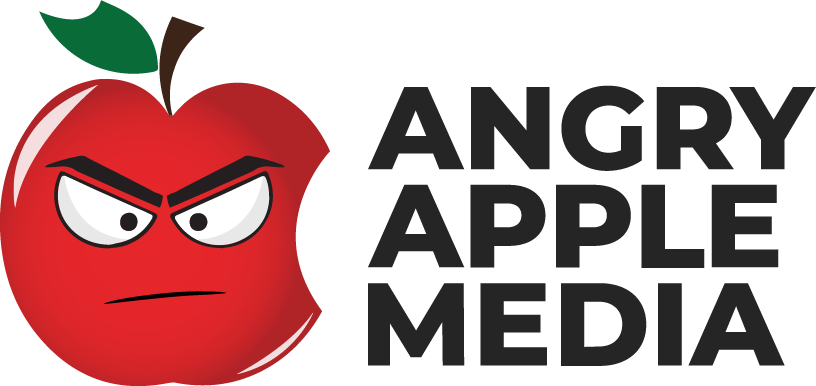
AI Discovery Engines Are Rising — But Is Google’s Search Share Really Shrinking?
In recent years, the online search landscape has begun to shift. With the emergence of generative AI and intelligent discovery engines like ChatGPT, Perplexity, and Microsoft’s AI-infused Bing, there’s been widespread speculation about the future of Google’s dominance in search. Headlines proclaim the “end of traditional search” and suggest SEO is fading into obsolescence.
But is Google’s grip on the search market really slipping or is the story more nuanced?
Despite the noise around AI, Google continues to lead the way in global search traffic and remains the most critical platform for digital marketers, especially when it comes to long-term visibility, customer intent, and organic reach.
Let’s break down where the market stands today, and why SEO is still the cornerstone of online discovery.
Google’s Market Share Remains Unrivalled
As of late 2025, Google still holds the lion’s share of global search traffic. Across desktop and mobile, it consistently captures over 85% of all search queries worldwide, with even stronger dominance in regions like the UK and Europe.
While Microsoft’s Bing, now enhanced with OpenAI-powered features, has seen slight upticks in usage, it still only commands around 6-7% of the market. Other players, including DuckDuckGo and Yahoo, occupy even smaller slices.
Even more interesting is the emergence of AI discovery tools like ChatGPT, Perplexity, and You.com. These platforms offer AI-generated answers rather than lists of blue links, and they’ve gained popularity, particularly among tech-savvy users. However, their overall traffic share is still relatively modest when compared to Google’s behemoth status.
Why Google Still Reigns: Intent, Authority & Ecosystem
There are a few reasons why Google remains at the centre of digital marketing and why SEO is far from dead.
1. Search Intent is Stronger on Google
People go to Google with the intent to find, compare, and buy. This is fundamentally different from AI tools, which often serve more exploratory or conversational use cases.
When users type “best running shoes for flat feet” or “affordable accounting software UK” into Google, they’re closer to taking action. Marketers value this high intent, and Google’s algorithm is designed to serve it well.
2. SEO Builds Long-Term Visibility
Unlike fleeting viral posts or paid campaigns, SEO is a long game and one that consistently pays off. High-quality, optimised content can rank for months or even years, driving ongoing organic traffic. Google rewards well-structured, authoritative content with prominent positions including featured snippets, people also ask boxes, and knowledge panels.
No other platform, including AI tools, currently offers the same kind of sustainable discoverability.
3. Google’s Ecosystem is Deeply Embedded
Google isn’t just a search engine; it’s an ecosystem. Google Ads, Google My Business, YouTube, Google Maps, Chrome, Gmail, all these tools feed into the search experience and reinforce user habits.
Most importantly, Google has the trust of billions of users. It’s the default homepage, the verb (“just Google it”), and the gateway to the internet for many. That kind of brand ubiquity takes decades to build and isn’t easily displaced.
The AI Discovery Experience: Impressive, but Limited
So, what about the AI challengers? Platforms like ChatGPT, especially with web browsing features enabled, are undoubtedly reshaping how people seek information.
These tools offer:
Conversational answers instead of links
Summarised, contextual information
A personalised tone or interaction
Reduced the need to click through to websites
For quick questions or research, this is incredibly useful. But from a marketing and SEO perspective, it raises concerns.
🔍 AI’s Weakness in Attribution
Most AI answers summarise content from the web but don’t always give credit or links to sources. For brands and content creators, this reduces visibility and traffic. Google, by contrast, links out to websites, giving marketers a tangible opportunity to attract and convert users.
🧱 Limited Business Integration
AI discovery engines don’t (yet) offer the same kind of business integrations, like product listings, local business info, reviews, or shopping ads that Google provides. This limits their utility for e-commerce and local marketing.
SEO in the Age of AI: Evolving, Not Dying
It’s important to recognise that SEO is not static. Google’s algorithm continues to evolve, increasingly rewarding content that demonstrates experience, expertise, authoritativeness, and trustworthiness (E-E-A-T). Additionally, Google’s own rollout of AI features (like Search Generative Experience, or SGE) shows that it’s adapting to the same trends.
This means marketers and content creators must adapt too. SEO today is about:
Creating deep, valuable content that answers user questions
Structuring content for AI-friendly formats (e.g. featured snippets, FAQs)
Optimising for mobile, voice search, and conversational queries
Building authoritative topical coverage on key subject areas
AI may change the form of search, but not the need for relevant, authoritative, and discoverable content.
So, Is Google’s Share Shrinking?
In terms of absolute numbers, not significantly. Google still processes billions of searches per day, and there’s no mass migration away from it.
What is happening is a diversification of the search landscape. Users are exploring alternatives for specific use cases quick research, summarised news, or casual learning, but Google remains the go-to for transactional, commercial, and navigational intent.
It’s fair to say AI discovery engines are complementary, not yet competitive, to Google.
Conclusion: Google’s Dominance Remains, SEO Still Matters
Despite the rise of AI search engines and discovery platforms, Google’s position as the leader in search remains firmly intact. For marketers, that means SEO is still one of the most powerful tools in the digital strategy toolkit.
The way users search may evolve, becoming more conversational, visual, and AI-assisted, but the underlying principles of search remain the same: help users find what they’re looking for with clear, relevant, and trustworthy content.
Rather than fearing the rise of AI, marketers should look at it as an opportunity to expand their visibility across discovery channels while continuing to invest in the tried-and-tested power of Google Search.
